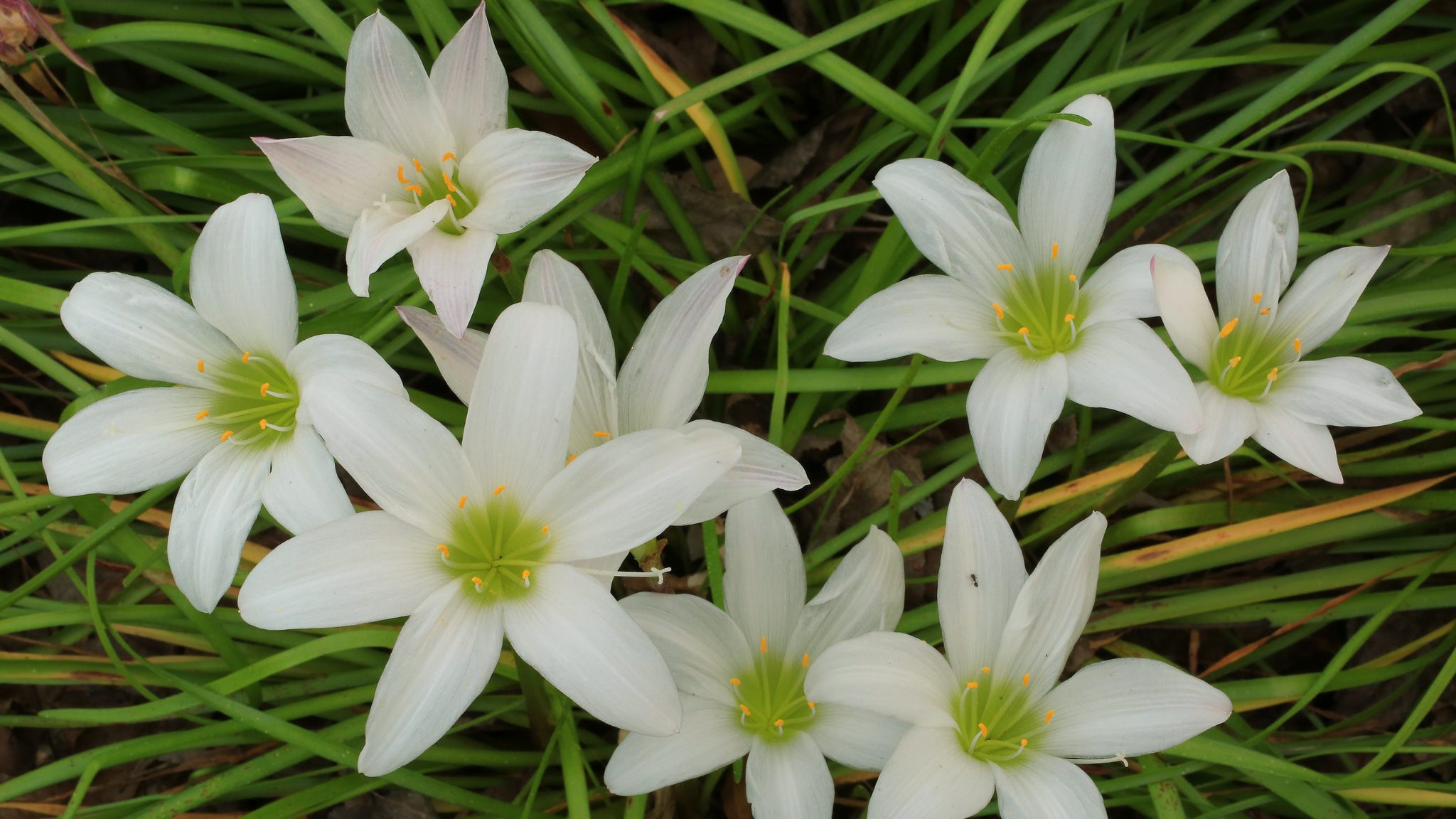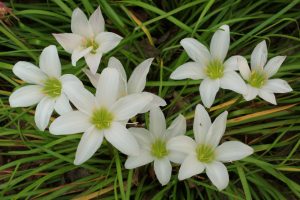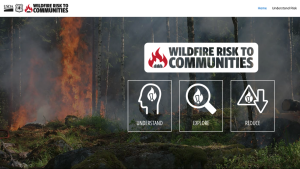March 2021 Newsletter

March 2021 Newsletter
Welcome to the Southeast Climate Adaptation Science Center’s March 2021 Newsletter.
For news and upcoming events related to the Southeast Climate Adaptation Science Center,
subscribe to our monthly newsletter.
SE CASC News | Resources | Publications | Tribal News | Partner News | Webinars | Events | Opportunities

Southeast Climate Adaptation Science Center News

Please join us on March 16 at 11am ET for the next SE CASC Science Seminar. Dr. Adam Terando will present on Using Global Climate Models in Natural Resource Management Decisions. More information and registration.
Save the date for the SE CASC Science Seminar on April 20 at 11am ET. Dr. James Cronin will present findings and applications of Strategic Habitat Conservation for the Brown Pelican. Register here.
At the March 2 Global Change Seminar, our Global Change Fellows discussed Environmental Justice in North Carolina: Then, Now, and Later with a great panel of experts. Read a brief summary and view the recording.
Mark your calendars for the final Global Change Seminar of the semester. Intergenerational Learning: How Children are Changing Past Generations’ Environmental Perceptions will be hosted by the SE CASC Global Change Fellows on April 13 from 3-4pm ET. Register.
Reminder: SE CASC is accepting Statements of Interest for 2022 funding. Deadline to submit is March 19. More information.
SE CASC is hiring a Postdoctoral Research Scholar in Data Science to assist with development of a prototype early warning system for Prescribed Fire Managers. Please apply by March 31. More information.
Learn more about two of our Global Change Fellows in these Researcher Spotlights: Rebecca Asser, Kate Gorman.
2018-19 Global Change Fellow, Tina Mozelewski was lead author and Faculty Affiliate, Rob Scheller co-authored, Forecasting for intended consequences. Learn more.
SE CASC Research Ecologist, Adam Terando presented “Using Information from Global Climate Models to Inform Policymaking” in the USGS Friday Findings Series.
2015-16 Global Change Fellow, Georgina Sanchez and Faculty Affiliate, Jelena Vukomanovic, co-authors to Cultural ecosystem services caught in a ‘coastal squeeze’ between sea level rise and urban expansion.
SE CASC Researcher, Mike Osland co-authored Effects of chronic and acute stressors on transplanted black mangrove (Avicennia germinans) seedlings along an eroding Louisiana shoreline.
New SE CASC project, An Assessment of Invasive Species Range Shifts in the Southeastern U.S. and Actions to Manage Them, was highlighted by The University of Florida: UF Scientists Set To Study Spread Of Florida’s Invasive Species.
Latest from Conservation Corridor: Both social and landscape networks are needed for effective climate-wise connectivity
Resources
FEATURED RESOURCE

Wildfire Risk to Communities
This interactive website developed by the U.S.Forest Service includes maps, charts, and resources to help communities understand, explore, and reduce wildfire risk. Data is collected from the Forest Service’s Wildfire Risk to Communities program, the Census Bureau and the U.S. Geological Survey for all 50 states. This effort marks the first time wildfire risk to communities has been mapped nationwide. All datasets are continually updated and are available at the community, county, and state levels. Learn more.
Pathways to Change and Justice for Underserved and Indigenous Communities Along Changing Coastlines. Columbia University’s Climate Adaptation Initiative of the Earth Institute hosted this webinar discussing climate change risk to vulnerable communities and pathways forward in harm reduction and ecological resilience. Learn more.
North Carolina Bird Atlas – Surveying the Birds in North Carolina. This community driven effort aims to map the distribution and abundance of birds throughout North Carolina. Everyone from the casual backyard observer to the avid birdwatcher is welcome to participate. Learn more.
Global Climate Risk Index 2021. This report aims to inform global climate policy debates by providing indicators of exposure and vulnerability to extreme events by country. This information is important for the individual countries to understand in order to be appropriately prepared for future events. Learn more.
10 New Insights in Climate Science. This synthesis report provides the latest findings and most important new emerging fields are in the ever-evolving discipline of climate science research. Learn more.
In the Media
Most People Aren’t Climate Scientists. We Should Talk About Climate Change Anyway. Discover Magazine
Testing Justice: New Ways to Address Environmental Inequalities. The Solutions Journal
The Age of the Megafire. Reuters
Webinar explains ecological drought. High Plains Journal
To Fight Flooding, This City Plans to Renovate—and Retreat. Bloomberg
Notable Publications
A cultural framework for Indigenous, Local, and Science knowledge systems in ecology and natural resource management. An analysis of available literature led to the development of a framework for general representation of knowledge systems, with specific emphasis on productive engagement between individuals from different communities and cultures in the field of ecology and natural resource management. Authors welcome Indigenous colleagues to continue sharing culturally relevant information that can advance understanding of the Human knowledge system. In addition, they challenge academic and government entities to establish professional standards for ecologists and natural resource managers to encourage respectful and meaningful knowledge exchange with Indigenous communities. Link to article.
A global analysis of subsidence, relative sea-level change and coastal flood exposure. Journal Abstract: Climate-induced sea-level rise and vertical land movements, including natural and human-induced subsidence in sedimentary coastal lowlands, combine to change relative sea levels around the world’s coasts. Although this affects local rates of sea-level rise, assessments of the coastal impacts of subsidence are lacking on a global scale. Here, we quantify global-mean relative sea-level rise to be 2.5 mm yr−1 over the past two decades. However, as coastal inhabitants are preferentially located in subsiding locations, they experience an average relative sea-level rise up to four times faster at 7.8 to 9.9 mm yr−1. These results indicate that the impacts and adaptation needs are much higher than reported global sea-level rise measurements suggest. In particular, human-induced subsidence in and surrounding coastal cities can be rapidly reduced with appropriate policy for groundwater utilization and drainage. Such policy would offer substantial and rapid benefits to reduce growth of coastal flood exposure due to relative sea-level rise. Link to article.
Global progress in incorporating climate adaptation into land protection for biodiversity since Aichi targets. Aichi Biodiversity Target 11 involves expanding the global protected area network to 17% by 2020 in an effort to protect biodiversity from the impacts of climate change. This study assessed each country’s contribution toward expanding this network by evaluating progress toward protecting climate refugia, protecting abiotic diversity, and increasing connectivity. While connectivity declined in 5% of countries, researchers suggest that 94% of countries have the opportunity to improve their efforts in one or more approaches to conserve biodiversity with 60% being identified as having multiple opportunities. Link to article.
Making sense of flash drought: definitions, indicators, and where we go from here. This literature review aims to provide an overview on the state of research on flash drought and provide a foundation for further research in the field. The term “flash drought” first appeared in the literature in 2002 and has grown to become an area of operative research. There is not currently a universally accepted definition of flash drought, but researchers identified that most papers distinguish this phenomenon as a short-lived and/or rapid onset event. Recently the research community has advocated for adopting the principle of flash drought events as rapid-intensification of drought conditions. Link to article.
Systemic effects of rising atmospheric vapor pressure deficit on plant physiology and productivity. Globally, a rise in vapor pressure deficit (VPD), also known as atmospheric drying, has been observed since the early 2000s. Recent research has suggested that elevated VPD can have a complex effect on plant physiology at anatomical, biochemical, and developmental levels and the phenomenon is only predicted to amplify in the coming decades as climate change intensifies. This team of researchers has outlined a systemic physiological framework of plant responses to elevated VPD and provides relevant areas of future research to better understand and mitigate the effects of rising VPD on ecosystems and agro‐systems. Link to article.

Tribal News
Visit USET Climate Change Headlines for updates on information regarding climate science events, funding opportunities, best practices, and highlights from across the USET region.
The third virtual session in the National Tribal Leadership Climate Change Summit, Empowering Indigenous Youth In the Climate Change Movement will be on April 1 from 1pm – 4pm EST. More information and registration.
The 2021 Native Youth Community Adaptation and Leadership Congress will take place virtually from July 5-29. Students from Federally Recognized Tribes can apply here by April 12.
The Bureau of Indian Affairs is accepting applications for the Tribal Climate Resilience Grants program. Apply here by April 23. Learn more about this program here.

Regional Partner News
National Fish and Wildlife Foundation: Announces Release of the National Coastal Resilience Fund 2021 Request for Proposals
Southeast Regional Climate Center: Southeast Climate Update and Webinar Recap
USDA Southeast Climate Hub: Saltwater Intrusion and Salinization on Coastal Forests and Farms
U.S. Forest Service: Forest vegetation change and its impacts on soil water following 47 Years of managed wildfire

Webinars
Find more upcoming events in our calendar.
Mar. 16 | 11am – 12pm | SE CASC Science Seminar: Using Information From Global Climate Models to Inform Management Decisions
Mar. 16 | 1pm – 3pm | Managing Harmful Algal Blooms in Tribal Waters, a Three-part Series
Mar. 17 | 12pm – 1pm | Sustainable Agriculture at College of Menominee Nation
Mar. 17 | 3pm – 4pm | Ecological Drought: Impacts on Coastal Ecosystems
Mar. 17 | 7pm – 8pm | En-ROADS Climate Simulator – How Well Will Our Climate Solutions Work?
Mar. 18 | 10am – 11am | South Atlantic Third Thursday Web Forum
Mar. 18 | 1pm – 3:30pm | Managing Harmful Algal Blooms in Tribal Waters, a Three-part Series
Mar. 30 | 2pm – 3pm | Landscape Conservation Project webinar: State Of Florida Ecological Report Card 2020
Mar. 31 | 11am – 12pm | Landscape Conservation Project webinar: State Of Florida Ecological Report Card 2020
Mar. 31 | 3PM – 4PM | Understanding the Role Coastal Marshes Play in Protecting Communities from Storm Surge and Flooding
Apr. 1 | 9am – 10am | Climate and Conservation Coffee
Apr. 1 | 1pm – 2pm | SCGIS Webinar: Building Effective Partnerships with Indigenous Communities
Apr. 1 | 1pm – 4pm | National Tribal Leadership Climate Change Summit Virtual Sessions: Session #3- Empowering Indigenous Youth Leadership in the Climate Movement
Apr. 13 | 10am – 11am | Southeast Climate Monthly Webinar
Apr. 13 | 3pm – 4pm | Global Change Seminar – Intergenerational Learning: How Children are Changing Past Generations’ Environmental Perceptions
Apr. 15 | 10am – 11am | South Atlantic Third Thursday Web Forum
Apr. 20 | 11am – 12pm | SE CASC Science Seminar: Strategic Habitat Conservation for the Brown Pelican: Estimating Habitat Objectives and Management Scenario Efficiencies
Upcoming Events
Univ. of Miami is hosting a virtual symposium, Sub-Tropical and Tropical Coastal Resilience: Social, Economic, and Physical Adaptations in South Florida and the Caribbean on Apr 7. More info and registration.
Registration is now open for the 2021 Carolina’s Climate Resilience Conference. Register here for in person and virtual attendance by April 9.
Georgia Department of Natural Resources Coastal Resources Division will host the 2021 Georgia Climate Conference on Jekyll Island, Georgia, August 12-13, 2021. Registration for the conference will open on May 1. Practitioners and researchers may submit a poster presentation proposal here by May 1.
The Earth Institute at Columbia University is hosting a Managed Retreat virtual conference from June 22-25. Register here.

Opportunities
Hiring Announcements
USGS is seeking a Postdoctoral Research Associate to develop and evaluate optimal management policies for migratory birds under climate change. Apply here by March 19.
USGS is seeking a Postdoctoral Research Associate to develop and evaluate novel approaches for integrating human dimensions into optimal strategies for annual waterfowl regulations. Apply here by March 19.
The USGS Water Mission Area has announced a cluster of job openings for Data Scientists, Machine Learning Specialists, and Water Information Product Managers. All applications are due here by March 19.
Alaska CASC is hiring a Postdoctoral Fellow in boreal wildfire dynamics and natural resource management in Alaska. Applications received by March 22 will be prioritized.
USFS is accepting applications for a Postdoctoral Fellowship in Applied Climate Change. Apply here by April 12.
Research Grants
National Fish and Wildlife Foundation has released a Request for Proposals for 2021 funding through the National Coastal Resilience Fund. Proposals can be submitted here until April 7.
NOAA’s National Sea Grant College Program and the NOAA National Marine Fisheries Service have released a Request for Proposals for funding to support greater amberjack (Seriola dumerili) research to determine abundance estimates by habitat type, distribution, and movement in U.S. Waters in the South Atlantic and Gulf of Mexico regions. Proposals are due here by April 9.
DOI is accepting applications for Recovery Land Acquisition Grants through the Cooperative Endangered Species Conservation Fund. Apply here by April 9.
DOI is accepting proposals for WaterSMART-Applied Science Grants. Apply here by April 21.
EPA has announced a request for applications for the FY 2021 Environmental Justice Collaborative Problem-Solving Cooperative Agreement Grants Program. Apply here by May 7.
EPA is accepting applications for the Environmental Justice Small Grants Program. Apply here by May 7.
DOI and USFWS are accepting applications for Coastal Program grants. Apply here by Sept. 30.
Miscellaneous
The South Central CASC is offering a free virtual course from April 5 – 30, 2021 on the Physical Impacts of Climate Change & Adaptation Strategies. Register here.
The Conservation Optimism Film Festival is seeking short films featuring stories of hope from around the globe. Selected films will be showcased in fall 2021 at the Oxford Museum of Natural History. Submissions are being accepted here until May 31.
- Categories:


